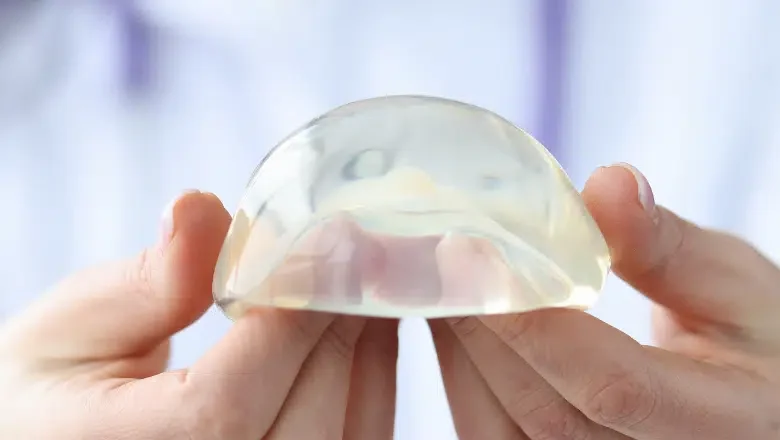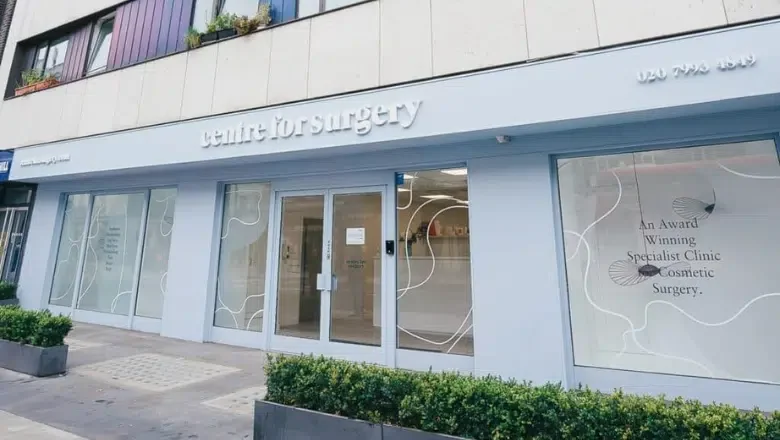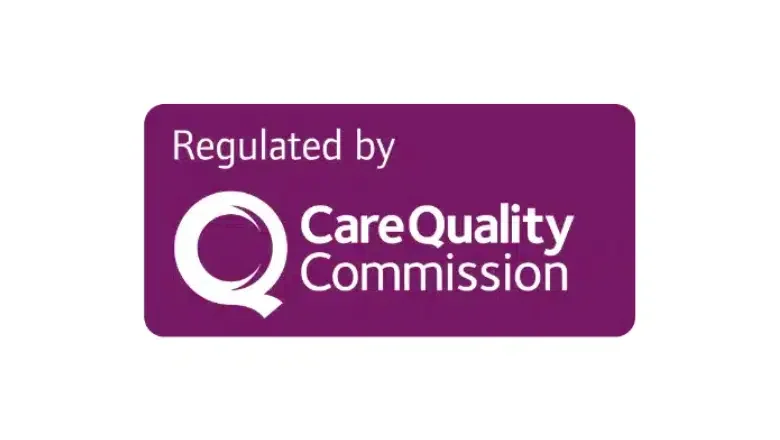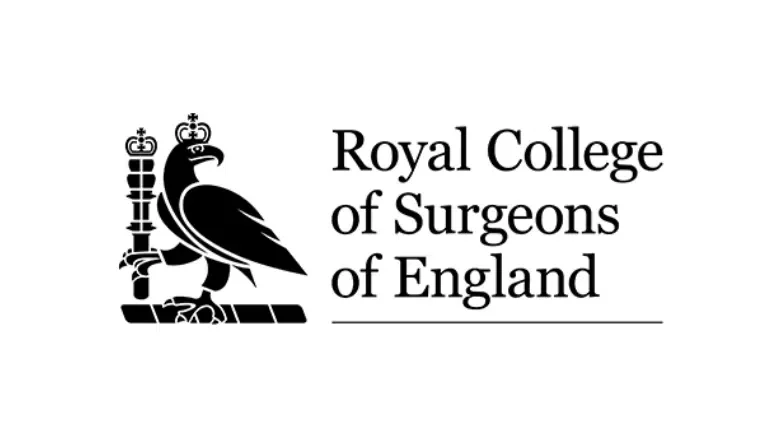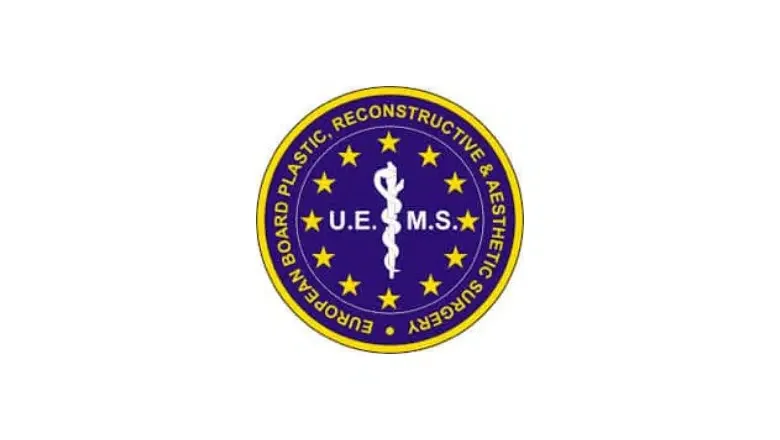Symptoms and Signs of Ruptured Breast Implants
Although most breast implant ruptures in the UK don’t lead to noticeable symptoms or health issues, it is still important to be aware of the signs that could indicate a ruptured implant. Knowing these signs can help you take timely action and consult your plastic surgeon for an assessment.
RELATED: What Happens If A Breast Implant Ruptures?
Saline implant rupture: When a saline-filled breast implant ruptures, it typically deflates and decreases in size. This may result in a sudden or gradual change in the shape and size of the affected breast. Some other symptoms of a ruptured saline implant include:
- Unusual breast shape
- Pain or discomfort in the breast
Silicone implant rupture: A ruptured silicone implant, on the other hand, may not cause noticeable changes in the breast’s appearance, as it doesn’t deflate like a saline implant. In many cases, ruptures in silicone implants can only be detected through breast MRI or ultrasound. However, in rare instances, a ruptured silicone gel implant may lead to:
- Pain or discomfort in the breast
- Formation of lumps in the breast
- Breast thickening
- Changes in breast contour
If you suspect a rupture in your breast implant, it is crucial to consult with your plastic surgeon for a thorough evaluation. Centre for Surgery is a leading plastic surgery clinic in London, UK, specialising in breast surgery and offering expert care to patients.
RELATED: Common questions about breast implants
Factors Contributing to Breast Implant Ruptures
Breast implants, whether filled with silicone or saline, have an outer silicone shell that can occasionally tear or become punctured, leading to a rupture. Various factors can contribute to a ruptured breast implant, regardless of the type of filling:
Natural ageing of the implant
Implants are not designed to last a lifetime. Over time, the implant shell begins to weaken, increasing the likelihood of a rupture as the implant ages.
Mechanical pressure
In very rare instances, mechanical pressure on the chest from a mammogram or an ultrasound may cause a tear in the breast implant.
Surgical damage
One of the most common causes of breast implant ruptures is damage sustained during surgery, such as during breast augmentation or reconstruction. If a sharp surgical instrument accidentally contacts the implant, it can create a small cut in the shell, which could eventually lead to a rupture.
Chest trauma
A forceful impact to the chest, like the kind experienced in a car accident, can cause a breast implant to rupture.
Shell weakening
If silicone leaks from the implant’s filling into the shell, the shell can weaken and become more susceptible to rupturing.
Needle insertion during biopsy
When performing a breast biopsy, a needle is inserted into the breast tissue to collect samples. Although needle biopsies are generally safe for patients with breast implants, they should be performed by an experienced professional to avoid puncturing the implant and causing a rupture.
Clinical Features of Ruptured Breast Implants
The signs and symptoms of a ruptured breast implant may vary depending on whether the implant is filled with saline or silicone.
Saline-filled breast implant rupture:
When a saline-filled breast implant ruptures, it usually deflates quickly, causing noticeable symptoms such as:
- A sudden or gradual change in the size and shape of the affected breast
- An abnormal breast shape
- Pain or discomfort in the breast
The body typically absorbs the saline solution without causing any harm.
Silicone-filled breast implant rupture:
Ruptures in silicone-filled implants are often more difficult to detect and may not present immediate symptoms. This is sometimes referred to as a “silent rupture.” However, some possible signs of a silicone implant rupture include:
- Pain or discomfort in the breast
- Changes in the breast’s contour or shape
- Breast lumps or thickening
Capsular contracture (tightening of the scar tissue around the implant)
Is Breast Implant Rupture Common?
Breast implant ruptures are relatively uncommon, with rupture rates remaining quite low, particularly in the initial years after receiving the implants. As implants age, the risk of rupture increases slightly, but not substantially.
Breast implants have been utilised for many years, and their safety and efficacy have been thoroughly researched. Implant manufacturers have made significant improvements to implant design over time, resulting in stronger, safer, and more durable products.
The latest generation of implants features multi-layered shells that have substantially reduced the risk of rupture. Modern implants can last up to 35 years without rupturing. However, revision surgery is typically recommended after 10-15 years to refresh the breasts and address any signs of ageing, even if the implants are still intact.
Implant rupture rates depend on several factors, including:
- The implant manufacturer
- The implant shape
- The age of the implant
- The type of implant filling (silicone or saline)
- The type of breast surgery (primary augmentation, revision augmentation, primary reconstruction, revision reconstruction)
All of these factors can influence an implant’s likelihood of rupturing. Generally, even as the implant ages, rupturing remains relatively rare.
Long-term data from one implant manufacturer revealed that eight years after breast augmentation, implant ruptures occurred in fewer than 6.5% of patients. Even a decade after breast surgery, less than 10% of patients had experienced a ruptured implant.
Additionally, 98% of patients who received more modern implants were free of ruptures five years after implantation. Ten years later, approximately 85% of these patients still had not experienced an implant rupture.
Centre for Surgery uses Mentor breast implants, which are considered the highest quality breast implants available in the UK today.
Treatment Options for Implant Rupture
While a ruptured breast implant generally does not pose significant health risks, surgical intervention is typically required to remove the damaged implant.
During surgery for both saline and silicone implants, a surgeon will remove the ruptured implant. If desired, the surgeon can also replace the damaged implant with a new one during the same procedure.
In cases where a ruptured silicone implant is not causing discomfort or other issues, it may be possible to leave it in place. A silent rupture does not alter the breast’s shape or pose any health risks.
As a result, it is essential to discuss your options with a surgeon at the Centre for Surgery, considering whether to remove, replace, or keep the ruptured silicone implant in place.
Potential Complications of Implant Rupture
Extensive research has been conducted on complications that may arise following the rupture of a breast implant.
According to current studies, a ruptured breast implant:
- Does not increase your risk of breast cancer
- Does not cause any connective tissue or autoimmune diseases (such as rheumatoid disease)
In most cases, implant ruptures do not pose health risks, and many of them go undetected. One known complication of a ruptured breast implant is capsular contracture – a condition where the tissue surrounding the implant hardens and tightens.
RELATED: 3 breast implant safety considerations to know about
Recommended Steps if You Suspect a Ruptured Breast Implant
If you believe your implant is leaking or suspect a rupture, contact your plastic surgeon immediately.
The surgeon can determine whether your implant is damaged or intact through a physical examination, ultrasound, or MRI.
If necessary, your implant can be surgically removed (explanted) and replaced with a new one. In the case of a silent rupture of a silicone implant, surgery may not be required. Centre for Surgery recommends monitoring any changes or discomfort in your breast to ensure the implant does not cause any problems.
RELATED: Breast Implant Scans With High-Resolution Ultrasound
FAQs about Implant Rupture
What are the visible changes in the appearance of ruptured implants?
The appearance of a ruptured implant varies depending on whether it is a saline or silicone implant. A ruptured saline implant typically results in a noticeable deflation, leading to a change in the size and shape of the breast. A ruptured silicone implant, on the other hand, may not cause visible changes due to the cohesive nature of the silicone gel. However, in some cases, it may result in breast deformity, swelling, or pain.
Is it necessary to remove a ruptured implant?
Although a ruptured implant may not pose immediate health risks, it is generally recommended that it be removed. In some cases, if the rupture is not causing pain, discomfort, or significant changes in appearance, the patient may choose to delay removal. However, discussing your options with your plastic surgeon is essential to make an informed decision.
How long can a ruptured implant be left in place?
The duration a ruptured implant can be left in place depends on the individual patient and the type of implant. In some cases, a ruptured silicone implant that does not cause discomfort or visible changes may be left in place without immediate harm. However, it is advisable to consult with your plastic surgeon to determine the best course of action based on your specific circumstances.
Can a ruptured implant cause illness?
A ruptured implant does not typically cause illness or severe health complications. However, it can lead to capsular contracture, pain, and changes in breast appearance. It is crucial to monitor any changes or discomfort and consult your plastic surgeon if you suspect a rupture.
Is a leaking breast implant considered an emergency?
A leaking breast implant is not usually considered an emergency. However, if you experience severe pain, swelling, or changes in the appearance of your breast, it is essential to contact your plastic surgeon for evaluation and guidance on the appropriate course of action.
Will the NHS remove my ruptured implant?
The NHS may remove a ruptured implant under specific circumstances, such as if the rupture is causing significant pain, infection, or other health complications. However, the NHS might not cover the cost of replacing the implant. It is crucial to discuss your situation with your healthcare provider to determine the appropriate course of action and potential costs involved.
Why choose Centre for Surgery for breast revision surgery?
At Centre for Surgery, we are dedicated to providing exceptional care and expertise in breast revision surgery. Here are some reasons why you should consider choosing us for your breast revision procedure:
Experienced Surgeons
Our team of highly skilled and experienced plastic surgeons specialises in breast revision surgery, ensuring that you are in the best hands for your procedure. They are committed to delivering the highest standard of care and achieving optimal results tailored to your unique needs.
Comprehensive Consultation
We believe in thorough consultations to understand your goals, concerns, and expectations. Our surgeons will provide personalised recommendations, discuss the most suitable surgical options, and address any questions or concerns to help you make an informed decision about your surgery.
State-of-the-Art Facilities
Centre for Surgery is equipped with cutting-edge technology and modern surgical facilities designed to provide a safe and comfortable environment for your procedure. Our commitment to patient safety and satisfaction is our top priority.
Personalised Care
We understand that each patient is unique, and we create customised treatment plans to ensure the best possible outcomes. From the initial consultation through the recovery process, our team is dedicated to providing personalized care and support tailored to your needs.
Comprehensive Aftercare
At Centre for Surgery, we are committed to your well-being and long-term satisfaction. Our comprehensive aftercare program ensures that you receive ongoing support and follow-up care as you recover from your breast revision surgery. Our team is always available to address any concerns or questions that may arise during your recovery.
High Patient Satisfaction
We take pride in our reputation for delivering exceptional results and excellent patient care. Our patient testimonials and reviews reflect our commitment to ensuring that every patient has a positive experience at Centre for Surgery.
